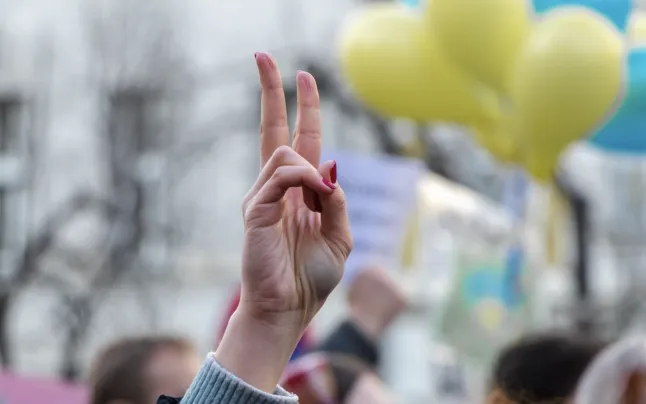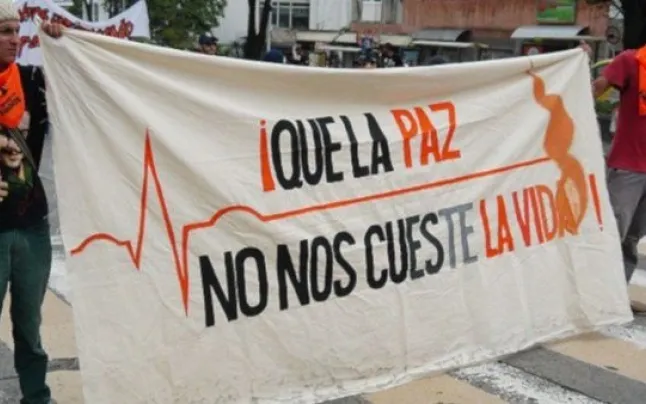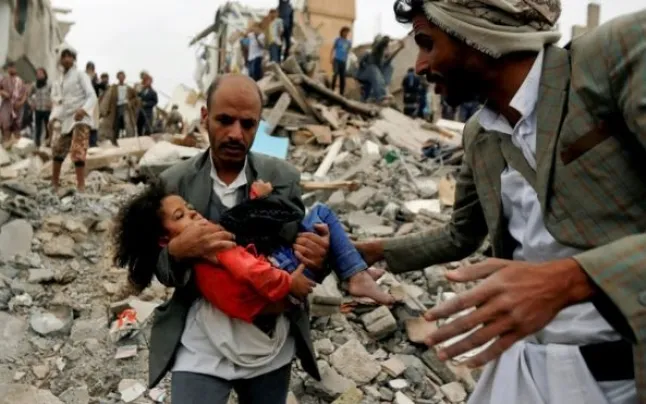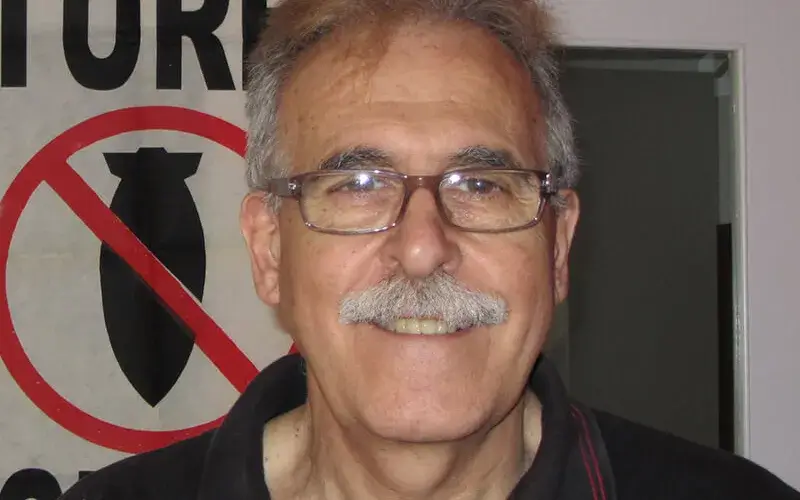The 'Alert2023!' Report shows that Ethiopia and Venezuela are two of the international regions where peace can be achieved, marked by long periods of instability and conflicts.
Achieving peace is a cherished goal for many countries and organizations, although it currently stands as a distant milestone, especially in light of Russia's invasion of Ukraine. Globally, persistent conflicts and tensions have emphasized the importance of seeking peaceful alternatives to resolve differences and avoid violence, where dialogue and mediation have become essential tools for promoting peace and harmony among nations.
In the quest to make peace visible and potentiate it, we find the 'Alert 2023!' report, a project that conducts an annual analysis of the world and highlights risk scenarios, crises, and peace opportunities, among other concepts. The project is driven by the Escola de Cultura de Pau (ECP), and in the recent edition, Ethiopia, Venezuela, Colombia, and Yemen take center stage.
- Ethiopia, the Fronts to Close for Peace Building
The first region highlighted by the report is Ethiopia, although the context of instability that has prevailed for years may complicate the achievement of peace. Two fronts must be emphasized: first, the armed conflict that began in the north, in Tigray, a situation that has caused significant political turmoil since 1991.
The authoritarian Tigray People's Liberation Front (TPLF) became the main member of the coalition government, controlling the Ethiopian People's Revolutionary Democratic Front (EPRDF), which brought suffering and repression to the citizens. In 2018, Abiy Ahmed came to power as the new prime minister, steering the country toward democracy with economic and political measures. However, these actions only escalated political tension, leading to the Tigray War in 2020.
Simultaneously, a second front opened in Oromia, where the violence of the National Liberation Army (OLA) worsened repression. Despite the tensions, there appears to be hope. In November 2022, the Federal Government and Tigray authorities reached an agreement to permanently cease the conflict, and peace talks with OLA were initiated. As a result, the disarmament of Tigray combatants began, and humanitarian aid was reactivated.
However, the agreement can easily be derailed for four reasons: the unresolved instability in the country, serious human rights violations, the integration of fighters who have killed thousands of people into state security, and the OLA-Federal Government conflict. Therefore, while there is consensus to reach a peace agreement, the path is fragile. Political movements and the attitude of each party will be closely monitored to determine if peace in Ethiopia is attainable.
- 'Paz Total,' the Project for Achieving Harmony in Colombia
In August 2022, Colombia embarked on a new era with Gustavo Petro as the president of the country, who came to power with a political strategy aimed at achieving peace, especially with the 'Paz Total' (Total Peace) project. Petro intends to build "a priority and cross-cutting peace in state matters, participatory, broad, inclusive, and comprehensive." Despite the initiated efforts, the tense and violent climate of rights violations and insecurity could make the transition to harmony challenging.
It all began with the 'peace with legality' agreement achieved by former president Iván Duque. However, the pact did not receive enough support, and now Petro proposes a second chance. The main goal of 'Paz Total' is to negotiate harmony with the country's main armed groups: the Revolutionary Armed Forces of Colombia (FARC) and the National Liberation Army (ELN), while designing security peace policies without sidelining the population.
So far, it seems that the goal is on the right track. Dialogues with FARC, other formations, and ELN have started, and negotiations have worked so well that a violence cessation agreement has been reached.
Undoubtedly, it is an ambitious project that aims to achieve balance in all spheres of the country. However, simultaneous dialogues between such opposing actors can be a challenge, requiring negotiating teams capable of advancing simultaneously in processes of enormous complexity. The high expectations generated by the pact can also work against it, as failures can lead to serious consequences.
Additionally, dialogue may not work in hostile areas such as the drug trade. The report emphasizes the government's management capacity and the adoption of a strategy that helps maintain the complex network of dialogues. Furthermore, they must be prepared to handle a possible failure to prevent a domino effect on other fronts, rendering 'Paz Total' ineffective.
- Negotiating the Crisis in Venezuela and the Challenges with the Opposition
The International Conference on Venezuela in April marked a turning point in the country. Proposed by Colombian President Gustavo Petro, the conference involved up to twenty representatives from other countries to reinitiate negotiations between Caracas and the opposition. While the conference did not resolve the problem, it marked the beginning of the path towards peace, with better understanding between the Venezuelan government and its adversaries and significant international support.
The summit ended with three commitments, including the need to establish an electoral schedule "allowing for free, transparent, and guaranteed elections." Secondly, gradually lifting sanctions on the government as it fulfills promises. Finally, reestablishing dialogue with Mexico and implementing the $3.2 billion trust fund currently frozen abroad, funds that the country's opposition also intends to invest in social programs.
The tense relationship with adversaries began to change when the National Assembly decreed the end of Juan Guaidó's interim government. The approach was also reflected in the positive view of the pact by other opposition sectors, seeing it as a measure to end the country's humanitarian crisis.
Regarding the relationship with Mexico, although negotiations have not advanced, Petro committed to maintaining contact. In fact, last year, relations with Caracas were reestablished, for instance. In the case of the United States, the Biden administration is more conciliatory toward Venezuela.
Peace is also a future possibility given the government's increased flexibility. For example, it has allowed parties outside the United Platform to designate members of the National Electoral Council. Additionally, there has been an 83% reduction in arbitrary detentions from 2021 to 2022 and a decrease in the number of protests and repressions.
Although the conference was highly ambitious and some results support hope, they have not been as significant as expected, jeopardizing stability. Among other things, the U.S. position remains the same, and there will be no firm dialogue until frozen capital can be manipulated. Furthermore, Mexico has demanded special conditions to resume talks, and the precarious human rights situation does not favor the process.
Nevertheless, the struggle continues, as despite the shadows in the process, the participating parties have sufficient reasons to reestablish dialogue, especially the opposition, which has seen that it can only govern if it wins elections.
- Possible Sustainable and Inclusive Peace in Yemen
The situation in Yemen is challenging. Yet, there is an opportunity to leave this stage behind, although, for now, the option is only an expectation for three reasons. Firstly, the reduction in violence with the April 2022 ceasefire agreement, a relaxation promoted by the UN that has had a positive impact on Yemeni society, particularly with fewer casualties.
Although the agreement was not renewed in October, the report considers the ceasefire as "evidence of the positive effects of approaching the conflict through negotiation." The second point is negotiations between Saudi Arabia and the followers of Al-Houthi, the leader of the group that aims to overthrow the country's government, a dialogue that began after the non-renewal of the agreement.
However, it is not seen as a strategic move to destroy Yemen, but rather as a self-interested move by Saudi Arabia, as it wants to disengage from a conflict that is costing it money and yielding no results. One of the concerns about the agreement, though, is that the parties may be seeking only their own benefit. Finally, the report highlights talks among Yemen's actors, where the UN has committed to reactivating them.
With the establishment of the Presidential Leadership Council in April 2022, efforts were made to advance dialogue among the parties, although it has not yielded results yet. Disagreements arose from the beginning, especially regarding the competence of the members. Therefore, the fact that everyone is looking out for their own interests makes it unlikely that they will move in the same direction in the short term.
The limited presence of civil society in the process can also complicate matters, even though the population has suffered the consequences of the quarrels the most. No one has taken care of the condition of Yemeni women, who have been forced to stay out of any negotiations. Furthermore, women have suffered strong exclusion, although their action has been crucial in many moments, such as in local mediation and peace-building initiatives.
The report concludes that peace in Yemen will take time and will have to take into account all perspectives on the conflict, its causes, and consequences. In achieving this resolution, the role of international actors will be crucial in facilitating negotiations and promoting the ceasefire. Additionally, a peaceful and dialogue-friendly environment will be required, without forgetting about the society. All of this while closely monitoring the actions of the actors with the most weight, especially armed groups, to limit their presence and prevent them from fighting solely for their interests.
- Dialogue and mediation are keys in the international context
The scenarios make us aware that, on an international scale, there are still many populations suffering from the ravages of violence and political interests, where human security means nothing. Most of these are conflicts that have existed for years, and their end is still distant.
In this context, dialogue and diplomacy become necessary, indispensable, and useful tools to address tensions, two concepts that have gained prominence in recent years. The 'New Peace Agenda' promoted by the United Nations is the framework on which to work to promote dialogue and peacebuilding, processes that are increasingly gaining more adherents.
In 2022, thirty-nine peace processes and negotiations were identified: fifteen in Africa, ten in Asia, six in Europe, and four in the Middle East and America. There is evidence of negotiations in nineteen of the thirty-three armed conflicts, a fact that comes in a difficult year with the outbreak of the conflict between Russia and Ukraine but also where the progressive cessation of violence in South Sudan or India was agreed upon. Therefore, these examples demonstrate the effectiveness of negotiations.
The presence of more involved actors is one of the factors that have led to an increase in peace processes, emphasizing dialogue and mediation—an action where the UN serves as the main mediator, but more organizations are becoming involved. With more stakeholders, the chances of bridging gaps between opponents and signing agreements may increase, but it is not guaranteed that increased intervention will be positive, as it can also lead to more discord.
It is vital to build inclusive peace that promotes dialogue and mediation, but from a multifaceted perspective that secures international support and places peace as a priority on global agendas. Over time, new mechanisms and commitments have emerged and gained global traction, strengthening the cause of peace.
However, as ethical as it may be to negotiate through dialogue, it is not as frequently utilized nor as valued as it should be, especially considering the lack of political will to choose this path of mediation. Through the 'Our Common Agenda' report, a framework has been created to address current and future issues. Peace is articulated in six ways: reducing strategic risks, enhancing international foresight and capacity to detect new risks to peace and security, and reformulating responses to all forms of violence.
Additionally, investing in peace prevention and consolidation, supporting regional prevention activities, and focusing security policies on women and girls. The intention is to involve a wide range of stakeholders in the implementation of these conditions, including civil society, with an eye on the 2024 Future Summit and the adoption of the Future Pact.







Add new comment